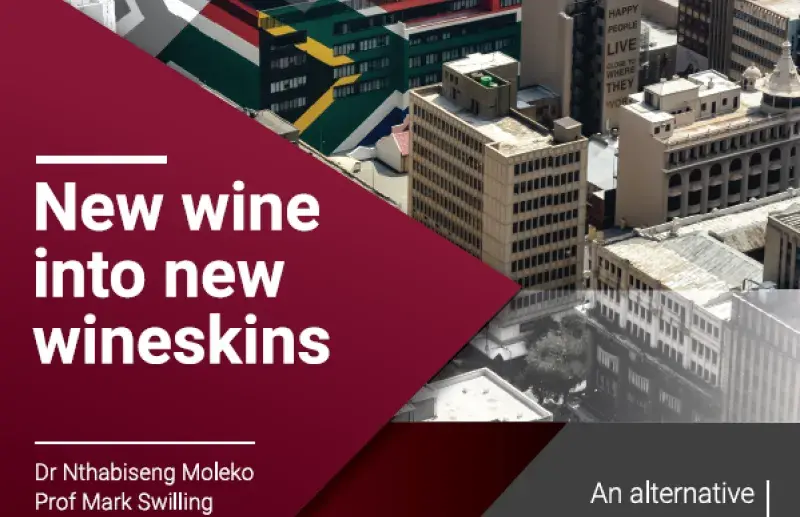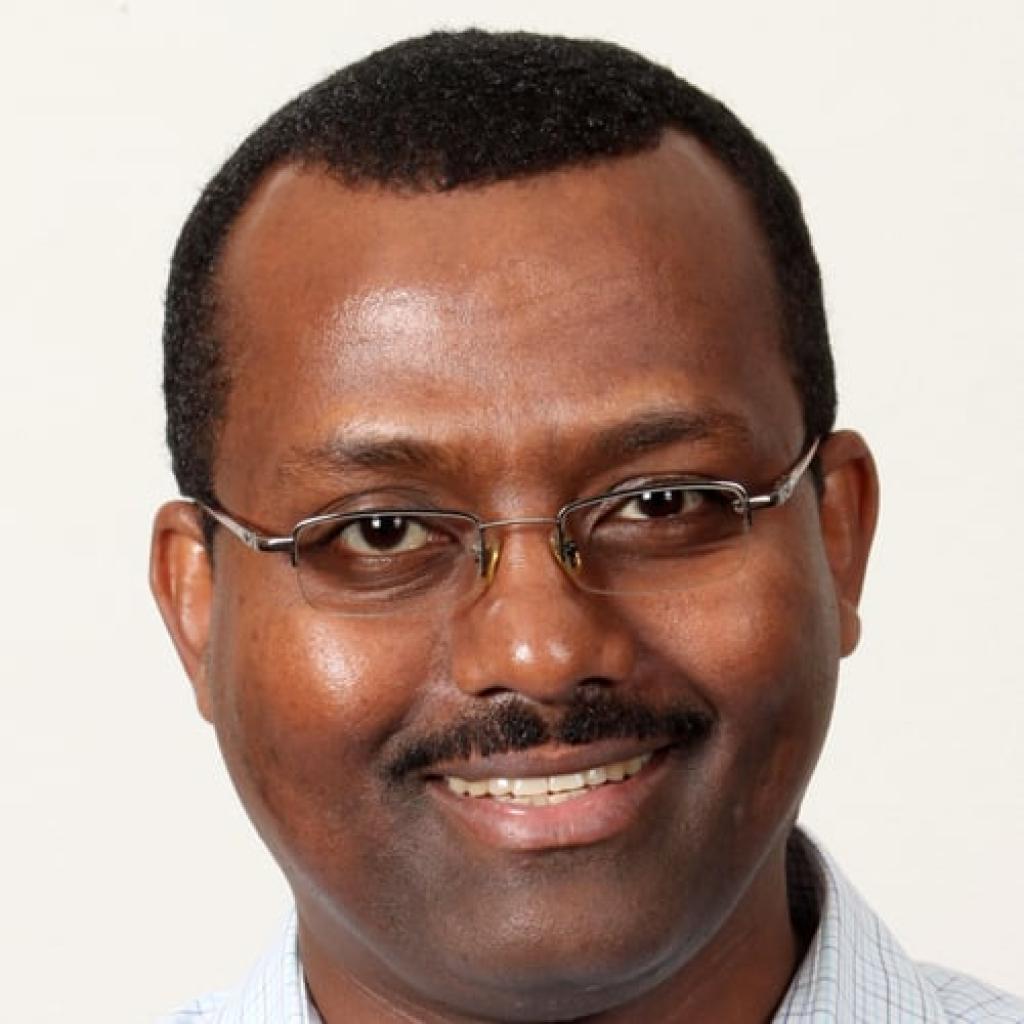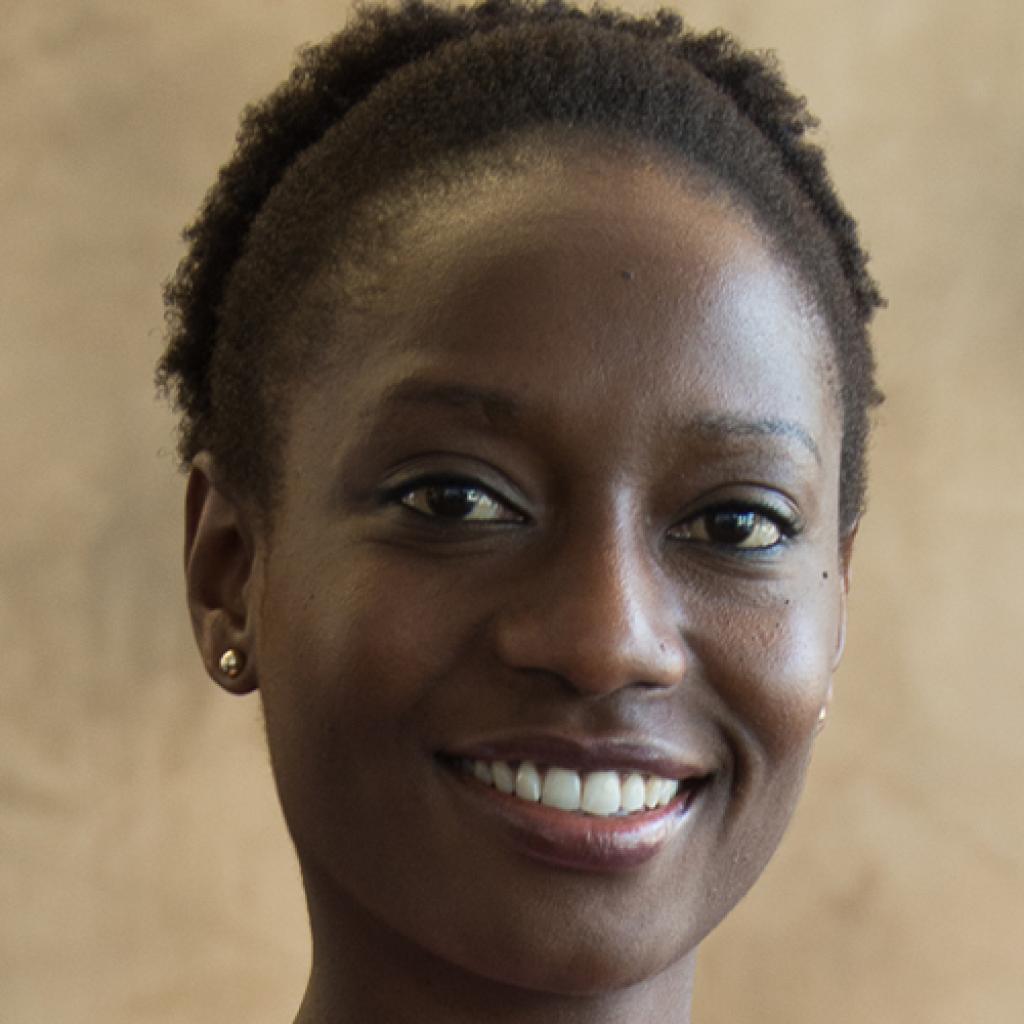Specialise in development finance – it is a scarce skill in Africa
If you want to make it your life’s work to help unlock Africa’s growth potential, the MPhil Development Finance will equip you with critical skills to become a specialist in this area. You will gain an understanding – on Master’s level – of the complexities of the different development finance resources available to poor countries, especially in Africa. You will acquire the skills to help formulate and implement policies to make this happen. You will also be exposed to skills that are crucial for Africa’s future – such as sustainable economic development, project finance, environmental finance, and responsible leadership.
A transformative learning pathway awaits you – in particular if you see your future self in senior positions in the financial services industry and in policy-making and regulatory institutions.
Master's
MPhil Development Finance
Modular
Dates for 2025: (on campus)*
- 24 March - 5 April
- 18 – 30 August
Fees: R209 256 (2025)
Duration: 2 years (class programme and research assignment)
*The Business School reserves the right to change programme dates and fees.
Blended
- 24 - 28 February – Orientation on 24 February Remote
- Thereafter every Monday and Tuesday blended from 17:00 – 19:00 until 25 November Remote
* All classes remote in the first year, electives in 2nd year will be on campus
Fees: R209 256 (2025)
Duration: 2 years (class programme and research assignment)
*The Business School reserves the right to change programme dates and fees.
Key takeouts of MPhil Development Finance
- Specialise in development finance – it is a scarce skill in Africa
- Learn to shape finance policies and programmes
- Equip yourself with skills for Africa’s future
- Understand the key role of development finance institutions (DFIs)
- Contribute towards sustainable development in Africa
Course Structure and Content
Stellenbosch Business School’s internationally accredited MPhil Development Finance will provide you with an astute understanding of development finance to help fill the enormous skills gap in this area in African countries and beyond.
This degree is relevant in terms of Africa’s development. Among others, you will be exposed to skills such as economic development, business finance, project finance, entrepreneurship and responsible leadership. Importantly, this postgraduate qualification has a strong focus on sustainable economic development.
This critical-skills degree is designed as a coherent programme of study to train you to:
- Understand the special problems of finance in developing countries in general and Africa in particular, and to acquire the skills to operate successfully and make a meaningful contribution to policy formulation and implementation in this field
- Articulate economic development needs and formulate, implement and evaluate appropriate policies and programmes to address these needs in Africa and other developing regions
- Better understand the complexities of and manage the different development finance resources available to poor countries, especially in Africa
- Appreciate emerging financial technologies and their application in the financial services industry.
You can choose to do this two-year programme in blended learning format (combination of weekly classes via an internet-linked laptop and one on-campus block) or modular format (three on-campus blocks of two weeks each spread over two years). Both formats enable you to study while you work.
The programme is aimed at graduates in both the public and private sector who are involved with macro, sectoral and enterprise-level finance, and financial management issues in the context of developing countries and emerging markets.
Graduates typically work in financial institutions such as central banks, commercial banks, non-bank financial institutions, and development finance institutions such as the Development Bank of Southern Africa (DBSA), industrial development corporations and the African Development Bank. They are often senior project managers or middle to senior management-level financial analysts.
This MPhil can provide a pathway to a PhD, which will allow you to become an expert in the field of development finance.
Do 6 compulsory modules
- Economic Development Perspectives in Africa
- Entrepreneurship
- Financial Technologies and Innovative Finance
- Issues in Banking and Finance
- Project Finance
- Small Business Finance
Choose 3 of the following electives – one from each block
Block 1
- Environmental Finance
- Infrastructural Finance
- Public Sector Finance
- Structured Finance
- Trade Policy and Finance
Block 2
- Agricultural Policy and Finance
- Business Forecasting and Econometric Analysis
- Corporate Governance and Ethics
- Small Scale Enterprise Development
- Sustainable Finance
Block 3
- Development Project Management
- Economic Diplomacy
- Financial Sector Regulation and Development
- Investment Promotion
The research assignment forms an integral part of this MPhil and carries a total of 60 credits, representing one-third of the credit requirements of the programme. The research assignment is usually between 15 000 and 25 000 words on a topic of your choice. You are encouraged to base your research assignment on a topic of direct professional interest to you. The research assignment is supervised by a member of the academic staff. You can work on your research assignment while you are doing your course work and electives. Through this research assignment you will learn how to:
- Identify and describe a research problem and goal in the field of development finance
- Become acquainted with relevant literature in this field
- Critically to apply research methods and techniques
- Present your material in a logical, clear and systematic way
- Show your capacity for independent, self-managed learning and critical reflection on the research process.
Stellenbosch Business School provides additional access to its programmes through its Recognition of Prior Learning (RPL) process, as recommended by the Council on Higher Education (CHE). The purpose of the Council on Higher Education’s policy on Recognition of Prior Learning is to develop and facilitate the implementation of RPL across the higher education sector and to base this on the principles of equity, access, inclusivity and redress of past unfair discrimination with regard to educational opportunities.
In line with the requirements of the Council on Higher Education, the Business School may admit up to 10% of its student body per programme under RPL.
Applicants who wish to be admitted under the RPL policy need to submit all the documentation as required for all prospective students. In addition, prospective students under the RPL policy need to adhere to the following:
- Have at least an NQF 6 qualification (all school and academic certificates are required)
- Have at least 6 years of working experience after obtaining the qualification mentioned in the first bullet point, of which at least 3 years should have been in a management or a related professional position
- Submit a comprehensive CV, indicating, in detail, areas of responsibility in the work environment as well as activities outside the work environment.
- Write an assignment of 10 to 15 pages (11 font and 1.5 spacing) on a topic supplied by the Development Finance programme head. The assignment must contain a signed declaration of own work.
- Provide Stellenbosch Business School with the names and contact details at least two persons (typically current or former line heads) who can testify about the candidate's managerial or related professional abilities. These persons will be asked to give a detailed personal reference of the candidate on forms that can be download from the application form.
The RPL selection process entails the following:
- The programme head and one other academic staff member will conduct an in-depth interview with the candidate and make a recommendation about admission.
- The Admissions Committee will consider the full application including the interview recommendation and the inputs received from the references for admission.
- A notice of admission is sent via the Business School’s Academic Planning Committee to the Board of the Faculty of Economic and Management Sciences at Stellenbosch University.
- RPL candidates need to apply by 31 October of each year to allow sufficient time for the assessment process.
- Note that the learning acknowledged in terms of RPL cannot also be used to grant exemption of credits within the same programme.
If you want to make it your life’s work to help unlock Africa’s growth potential, this internationally accredited MPhil Development Finance will equip you with critical skills to become a specialist in this area. You will gain an understanding of the complexities of the different development finance resources available to poor countries, especially in Africa.
Programme Fees
Application fee for 2024
Tuition fees for 2024
Important:
- Payment of full programme fees for South African students: Students can pay the full programme fees upon registration, or they can pay 80% of the annual fees by the end of May and the balance of 20% by the end of September.
Payment schedule (calculated on outstanding fee after deposit payment):
28 February - 31 May - 20% x 4 months (80%)
30 June - 20 September - 5% x 4 months (20%) - Payment of full programme fees for international students: International admitted students pay 50% of the annual fee as deposit. The remainder is due one month before commencement of the programme. The South African exchange rate favours international students.
- Deposit: All students pay a deposit on acceptance of admission. South African students must pay a set deposit on admittance. International admitted students pay 50% of the annual fee as deposit. The deposit payable is non-refundable and will be deducted from the total programme fees.
- Application fee: The application fee must accompany the application. The application fee is non-refundable.
- Additional fees for international students: International students pay an International Registration Fee (IRF) per academic year. Students from countries other than those in the Southern African Development Community also pay an International Tuition Fee (ITF) (i.e. students from SADC countries are exempt from the ITF).
- Fees for 2026: The fees for the second year of enrolment will be adjusted to make provision for annual price increases.
- Study materials: Some core e-textbooks and other study material will be provided to students and the cost thereof is included in the tuition fees. These books become the property of the student.
- Travel and accommodation: Students are responsible for their own travel and accommodation arrangements and costs.
- Correspondence: Please use your student number as reference on all correspondence. Email proof of payment to [email protected].
- Programme sustainability: The Business School reserves the right not to present a programme or programme stream if the enrolment numbers are not sufficient to make the programme sustainable.
- Fee changes: Stellenbosch Business School reserves the right to change the fees at any time.
Admission Requirements
Academic qualifications
- An appropriate Honours degree (first postgraduate degree after a Bachelor’s degree) or a 4-year Bachelor’s degree in business, finance, economics, accounting or commerce; OR
- A 3-year Bachelor’s degree and postgraduate diploma (120 SAQA credits) from a university or a university of technology in business, finance, economics, accounting or commerce; OR
- A postgraduate degree in any discipline and appropriate experience in the area of development economics and/or finance
Other requirements
- At least two years of working experience (highly recommended)
- A sound understanding of quantitative analysis (a good pass/grade for school-leaving mathematics will be an advantage)
Important
- The Bachelor’s or Honours degree must be on a level that is equivalent to the South African qualification. Local and foreign academic qualifications have to be at the NQF 7 level (old) or NQF 8 level (new). This implies that the qualification includes a module in Research Methodology and an individual research paper.
- About the online application process: The online application form consists of various sections. To progress from the one section to the next, all the information in the current section must be completed and accepted by the information management system. You will be able to complete the form in steps without losing information (i.e. you do not have to complete the application form in one sitting). The application process is the same for South African and international students. It is best to use Google Chrome as web browser when completing your application.
- Determine the NQF levels of your previous qualifications: To find out whether you qualify for this programme, please check the NQF levels of your previous qualifications with the academic institution(s) where you have studied, or contact [email protected].
- Assessment of international students’ applications: International students require a South African Qualifications Authority (SAQA) evaluation certificate to evaluate their degrees according to South African standards. The Business School’s International Affairs Office will first handle the credential evaluations of international students free of charge. For this to happen, you need to complete the online application and upload all certificates with your application. The International Affairs Office will then, as part of the application process, conduct an in-house credential evaluation after you have submitted your application. However, should the International Affairs Office be unsure about the status, recognition or accreditation of your qualification, we reserve the right to refer you to SAQA before we consider your application further.
- Checking the status of your application: You can go back to your application and check the status of your application.
- Vetting process: All degrees undergo a formal vetting process to eliminate fraudulent applications.
Click on the APPLY NOW button and complete the online application form by completing each of the required sections. You also need to upload the following supporting documentation:
- Proof of school-leaving mathematics results
- Certified copies of academic records (which must include a transcript of the subjects)
- Detailed CV
- Consent form to verify your qualifications (please download, complete and upload the form in order for Managed Integrity Evaluation (Pty) Ltd to verify your qualification documents)
- Motivational essay (see above)
- Copy of ID (or passport for non-South African students)
- Marriage certificate (where the applicant’s new surname does not match that on the degree certificates)
- Signed declaration form
Payment of your application fee can be done online:
- Bank details: Bank: Standard Bank; Type of account: cheque account; Account name: US Business School; Account number: 073003069; Branch name: Stellenbosch; Branch code: 050610; Beneficiary name: Stellenbosch University; SWIFT code: SBZAZAJJ.
- Enquiries about payments: Please send an e-mail to [email protected].
What happens next?
Your application can only be assessed by the selection panel if it is accompanied by your completed online application form and all the supporting documents, and if you have paid the application fee. The outcome of the selection process will be made known within 30 days or as soon as possible thereafter. If you are uncertain whether your application is complete and is being processed, contact [email protected] for assistance.
Deadlines for MPhil Development Finance applications:
- 30 November for students from South Africa, visa-exempt SADC countries, and the rest of the world
- 31 October for Recognition of Prior Learning applicants
Also note the following:
- Deadlines for RPL applicants: Note that application deadlines for Recognition of Prior Learning (RPL) applicants are earlier than those for other students.
- Study permits for international students: Obtaining a study permit (study visa) from the South African authorities can take up to 12 weeks from the date of being offered a place on a programme at the Business School. An early start with the application process is therefore recommended.
- Multiple-entry visas: Students from non-SADC African countries and other countries with visa requirements who need to apply for study visas can obtain a letter from Stellenbosch Business School confirming the duration of registration at the Business School. This will help students to obtain multiple-entry study visas in case of modular studies.
Study visa requirements for international students
All residential students who are non-South African citizens and are studying at Stellenbosch Business School require a study visa. Prospective students should contact their nearest South African Mission (South African Embassy, Consulate or High Commission), normally in their country of origin, to enquire about the requirements for study visas for South Africa. Applicants are required to present themselves in person so that biometric data may be captured. All international students can contact the Business School’s International Affairs Office at [email protected] for assistance. All international students must hold a valid visa for their intended activity prior to entering South Africa.
Notes on obtaining a study visa
- Obtaining a study visa from the South African authorities takes approximately 12 to 16 weeks from the date of application. However, some missions may process applications sooner. Sufficient time should be allowed for study visa applications to be processed.
- Your study visa application should include a copy of the letter offering a place on the Business School’s study programme. This letter will be provided by our Centre for Academic Administration once the application has been approved. A place on the programme must be confirmed before a study visa application can be considered by the South African Department of Home Affairs. Students should not proceed to Stellenbosch University or its Business School without a valid study visa.
- Although applicants are expected to determine exactly what they require to apply for a study visa, they can be expected to provide the following, among others: a police clearance certificate, proof of medical insurance recognised in South Africa, a radiology report, proof of sufficient funds, and an admission letter from Stellenbosch Business School. Your nearest South African Mission will be able to advise in this regard. The onus falls on the student to make sure that he/she submits a complete application pack.
- All documents should be certified and translated into English before submission (in order not to delay the outcome of the application).
Contact Us
Please contact us if you need more information on this programme or the application process:
Programme enquiries and support with the applications process
Henry Booysen
Telephone: +27 (0) 21 918 4243
Email: [email protected]
Admission and registration enquiries
Marissa Groenewald
Telephone: +27 (0) 21 918 4114
Email: [email protected]
Related Events
Stellenbosch Business School | Virtual Open Week 2023
Kampala, Uganda Information Session
Kigali, Rwanda Information Session
Frequently Asked Questions
Not necessarily. The Postgraduate Diploma Development Finance is a natural feeder to the MPhil Development Finance and presupposes the learning that needs to be in place to make the most of this MPhil. Only in extreme cases will we accept exceptional candidates as Recognition of Prior Learning applicants.
Yes, you can apply through the Recognition of Prior Learning (RPL) process.
Stellenbosch Business School provides additional access to its programmes through its Recognition of Prior Learning (RPL) process, as recommended by the Council on Higher Education (CHE). The purpose of the Council on Higher Education’s policy on Recognition of Prior Learning is to develop and facilitate the implementation of RPL across the higher education sector and to base this on the principles of equity, access, inclusivity and redress of past unfair discrimination with regard to educational opportunities.
In line with the requirements of the Council on Higher Education, the Business School may admit up to 10% of its student body per programme under RPL.
Applicants who wish to be admitted under the RPL policy need to submit all the documentation and tests as required for all prospective students. In addition, you need to adhere to the following:
- Have at least an NQF 6 qualification (all school and academic certificates are required)
- Have at least 6 years of working experience after obtaining the qualification mentioned in the first bullet point, of which at least 3 years should have been in a management or a related professional position
- Submit a comprehensive CV
- Write an assignment of 10 to 15 pages on a topic supplied by the Development Finance programme head
- Provide Stellenbosch Business School with the names and contact details at least two persons (typically current or former line heads) who can testify about your managerial or related professional abilities.
The programme head and one other academic staff member will conduct an in-depth interview with the candidate and make a recommendation about admission. RPL candidates need to apply by 31 October of each year to allow sufficient time for the assessment process.
Yes. South African students can pay the full programme fees upon registration, or they can pay 80% of the annual fees by the end of May and the balance of 20% by the end of September. International admitted students pay 50% of the annual fee as deposit. The remainder is due one month before commencement of the programme.
Fees include tuition, assessment and e-textbooks.
Study loans for students from West Africa: Guaranty Trust Bank Plc, with its headquarters in Lagos, Nigeria, has partnered with Stellenbosch Business School to provide loan facilities for tuition expenses to Stellenbosch Business School students in West Africa. The MaxAdvance facility is a time loan or term loan that aims to meet a range of personal needs for students.
Related Programmes
Related Articles











